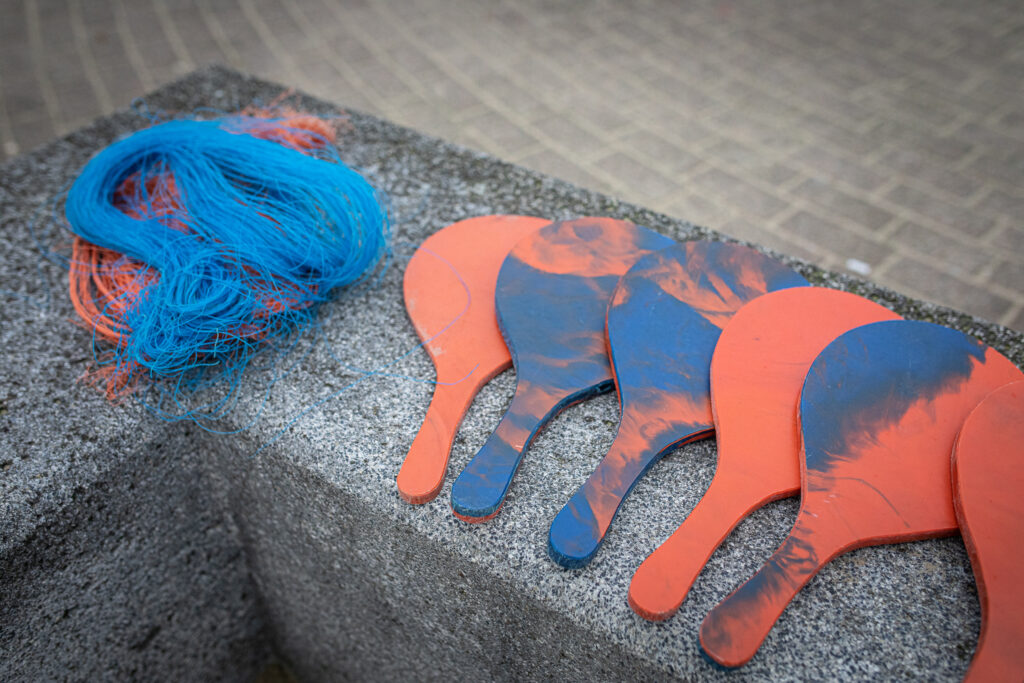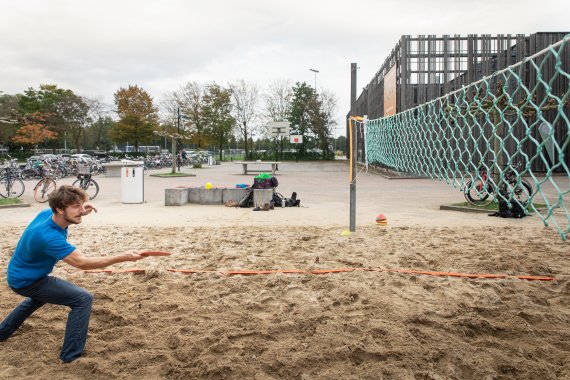‘Beachaton is akin badminton on the beach’, says De Rooij, founder of the start-up Plastic Playgrounds and spiritual father of the new sport. ‘The rules are slightly different, and it’s played with hard paddles, but otherwise, it’s very similar. What makes it unique is that all the material for beachaton is made from recycled fishing nets from the sea. This makes it the first fully circular sport.’ The Beachaton paddles and nets are made from discarded fishing nets that were stored at the port of Rotterdam. A series of photos on Instagram shows the process.
It makes sense that fishing nets are a major problem for marine life, says De Rooij. ‘But besides the fishing nets currently in use by fishermen, large numbers of nets are discarded into the sea, because they are not recycled. We want to change that.’

‘Our concept is simple’, De Rooij continues. ‘We want to spend our revenues on removing fishing nets from the ocean and encourage fishermen to return used nets, which we can use to produce new Beachaton material.’
For the last several weeks, the new sport has been practiced every Thursday on the beach near the entrance of De Bongerd sports centre. The last session of this year is on Thursday 31 October; the sport will resume in the spring. Ten people have already practiced the sport, but De Rooij hopes that it will soon become bigger. ‘Because the more people play Beachaton, the cleaner the ocean will become.’

 A Beachaton training at De Bongerd sports centre. Photo: Sven Menschel
A Beachaton training at De Bongerd sports centre. Photo: Sven Menschel